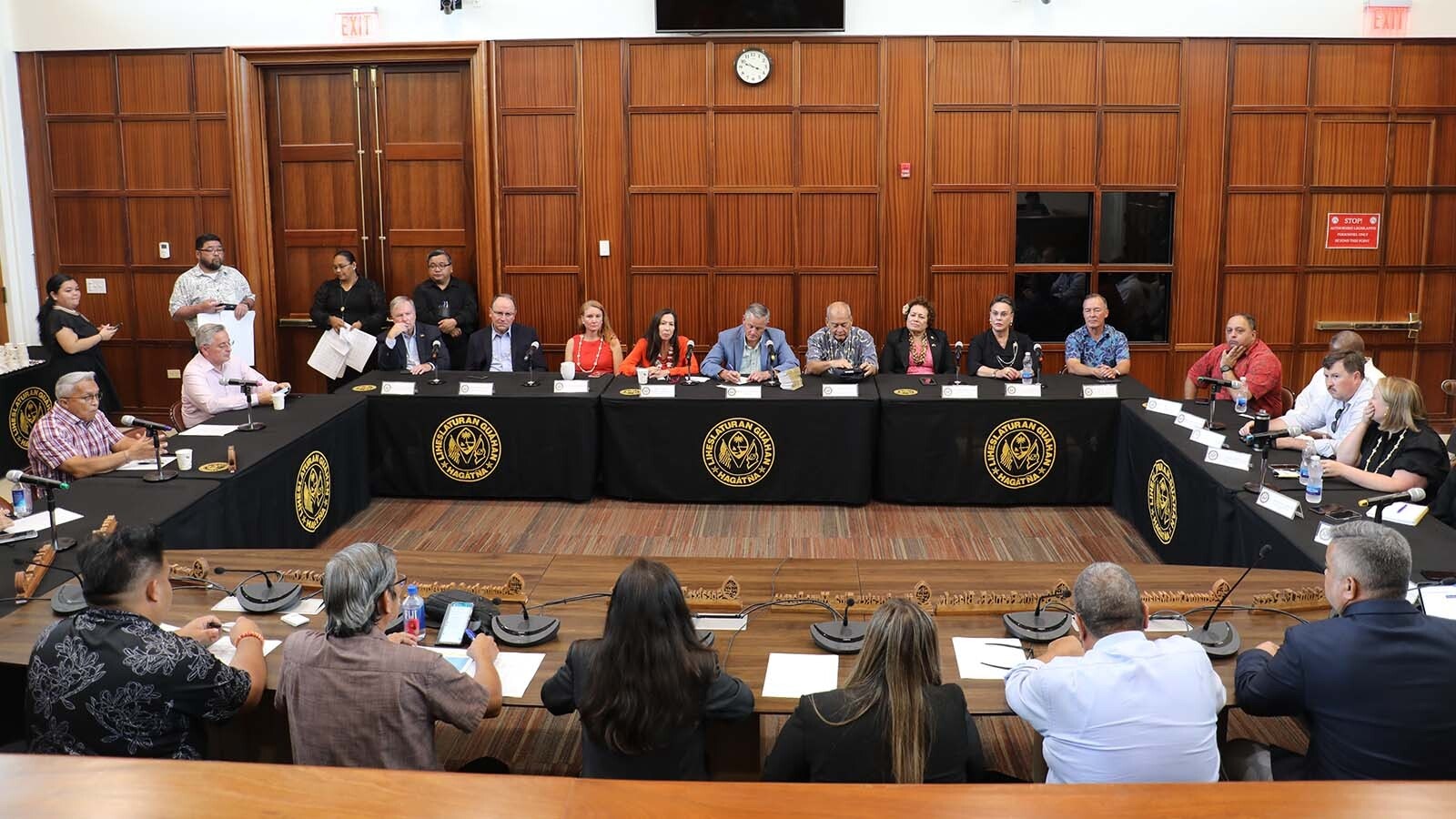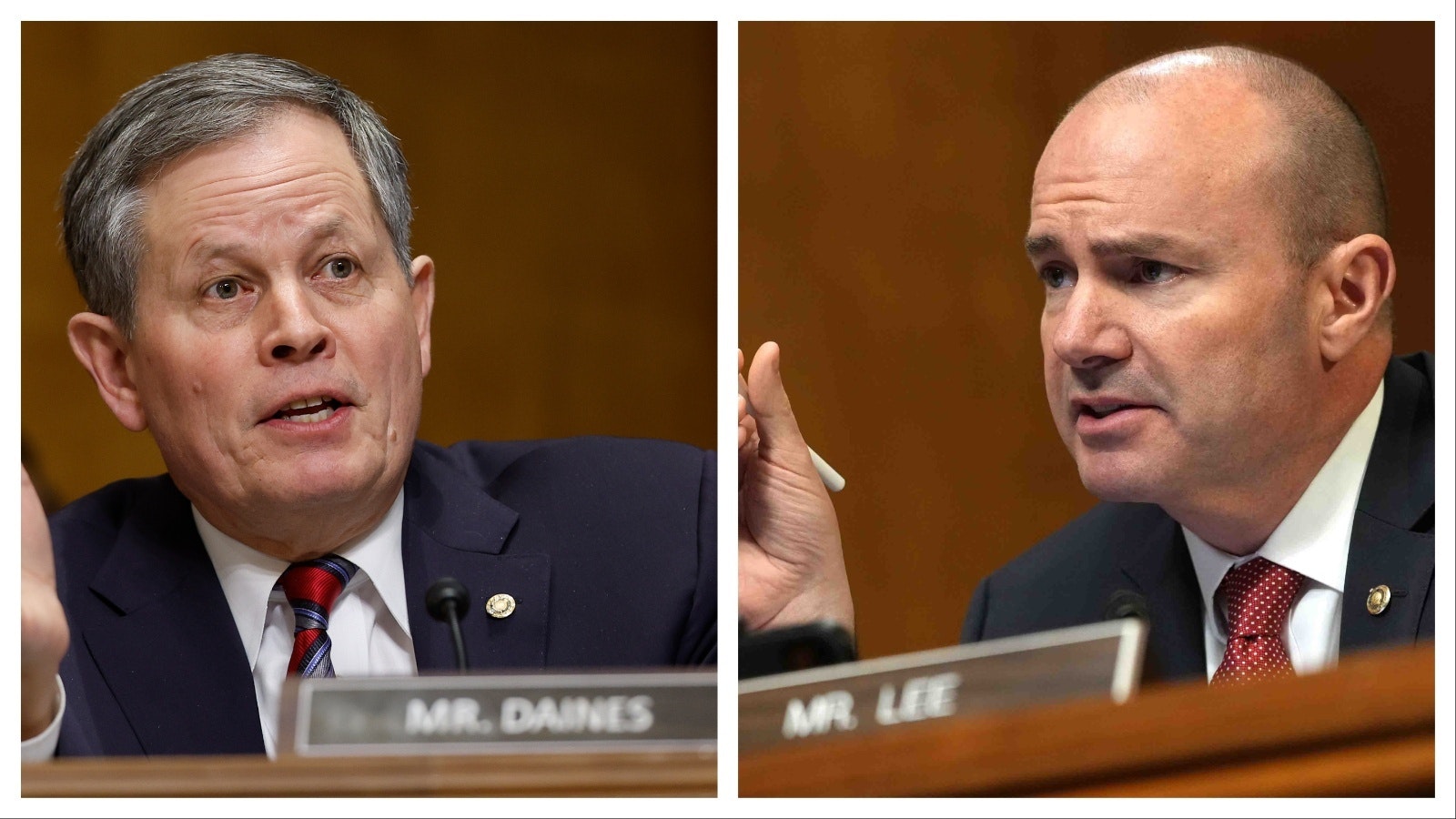As the crow flies, Wyoming is 6,620 miles from Guam. Even so, U.S. Rep. Harriet Hageman wants Wyoming residents to consider the 210-square-mile island and others like it in the Pacific and Indian oceans as the front door to American security interests.
She told Cowboy State Daily this week that China’s aggression toward them these island nations could be a sign of possible action toward the United States is one of the few topics in Congress on which both Democrats and Republicans agree.
That’s why the Wyoming Republican and the other members of the bipartisan Indo-Pacific Task Force went to Guam last month to discuss the region’s geopolitical alignment against China. The purpose of the trip was for members of the task force to see the region firsthand and learn about the challenges facing the people there.
“It was an important trip for representatives from the United States to go to those countries, those islands, and let them know how important they are,” she said.
Hageman chairs the Subcommittee of Indian and Insular Affairs, which oversees issues affecting U.S. territories like Guam, American Samoa and the Northern Mariana Islands.
She started the trip with a brief stop in Hawaii where military personnel briefed her about threats the island faces from China. From there, committee members flew to Guam.
There, Hageman met with some of the top political leaders of Guam, American Samoa and the Northern Mariana Islands. The leaders told the American delegation about the daily threats their islands receive from China and what they and other islands in the region provide for American security.
Hageman described the islands of this region as America’s “first line of defense against the Chinese Communist Party.”
“There are grave concerns as far as being able to deal with China, and not only national implications but international implications as well,” she said.

An American Extension
The U.S. has a strategic naval base on Guam, an American sovereign state, and other military installations on the Marshall Islands.
During World War II, the U.S. lost more than 100,000 soldiers while retaking western Pacific Ocean islands from Japan.
“That’s how incredibly important they are from a geographic location,” Hageman said.
During the war, Japan took over Guam and controlled it for about 31 months. American forces freed the island later in the war, an act Hageman said the island’s residents are still “extremely appreciative of.”
The U.S. is now in the middle of establishing new, 20-year agreements that govern the relationships between the United States and the three Pacific Islands states — the Federated States of Micronesia, the Republic of the Marshall Islands and the Republic of Palau. Hageman said these small countries want to be free and trust the U.S. to defend them.
Hagemen said that as a security issue and from a geopolitical and military standpoint, it is extremely important for the U.S. to have good relations with these South Pacific islands.
The agreements being established would allow the U.S. to continue defending the sovereignty of these islands against the threat of takeover by another country.
Hageman said the islands also help America gather information about China that it might otherwise struggle to get halfway across the globe.

The Threats
Hageman said one of the most serious impacts that China has had on these islands is overfishing.
With severely depleted fisheries in its own coastal waters, China now fishes in every ocean of the world. In some cases, it’s on a scale that dwarfs the fishing fleets of other countries even in those countries’ own waters, according to The New York Times. Overfishing around the world could have serious implications for global food supplies.
“It’s a grave, grave concern with what we see of China overfishing all of the world's seas,” Hageman said.
Hageman said most of the western Pacific islands are primarily dependent on fisheries and the U.S. military to fuel their economies.
She said Palau particularly feels pressure from China as the small island country has been aggressively protecting its fishing interests.
Hageman also pointed to China’s tenuous and restrictive oversight of Hong Kong - a special administrative region of China - as an example of what could happen to these islands in the future. Prior to the Chinese takeover in 1997, Hong Kong had a much stronger economy.
Until 1984, the British ruled Hong Kong for more than 150 years prior and for the most part let it self-govern itself. Taiwan is in a similar situation. It considers itself an independent country, but is facing many imminent threats from neighboring China.
“The concerns are that China will not have anyone’s interests but its own at heart and will do whatever necessary to control a lot of the different aspects of what are free, Democratic societies at this point,” Hageman said.

China And Wyoming
Hageman said China has been making inroads in Wyoming and America that residents should be concerned about.
Chinese firms and investors own about 380,000 acres of farm ground in the U.S. More than a third of Chinese-owned land in the U.S., belongs to Smithfield Foods, which runs a major facility in neighboring Utah.
During the 2023 legislative session, Wyoming lawmakers considered two bills that would have restricted foreign ownership of land in the state but neither made it very far. Hageman said it’s very important that Wyoming and the federal government address these issues legislatively.
She’s already co-sponsored a bill that would prohibit China from purchasing American agricultural land and another piece of legislation that would prevent all foreign countries from purchasing American property near sensitive national security interests, such as military bases. Another bill that she co-sponsored would prohibit President Joe Biden from selling oil out of its strategic petroleum reserves to China.
“It relates to our supply chain, our food security, our national security,” Hageman said. “All of those are issues that have ties directly from Wyoming to China and the South Pacific.”
Leo Wolfson can be reached at leo@cowboystatedaily.com.





